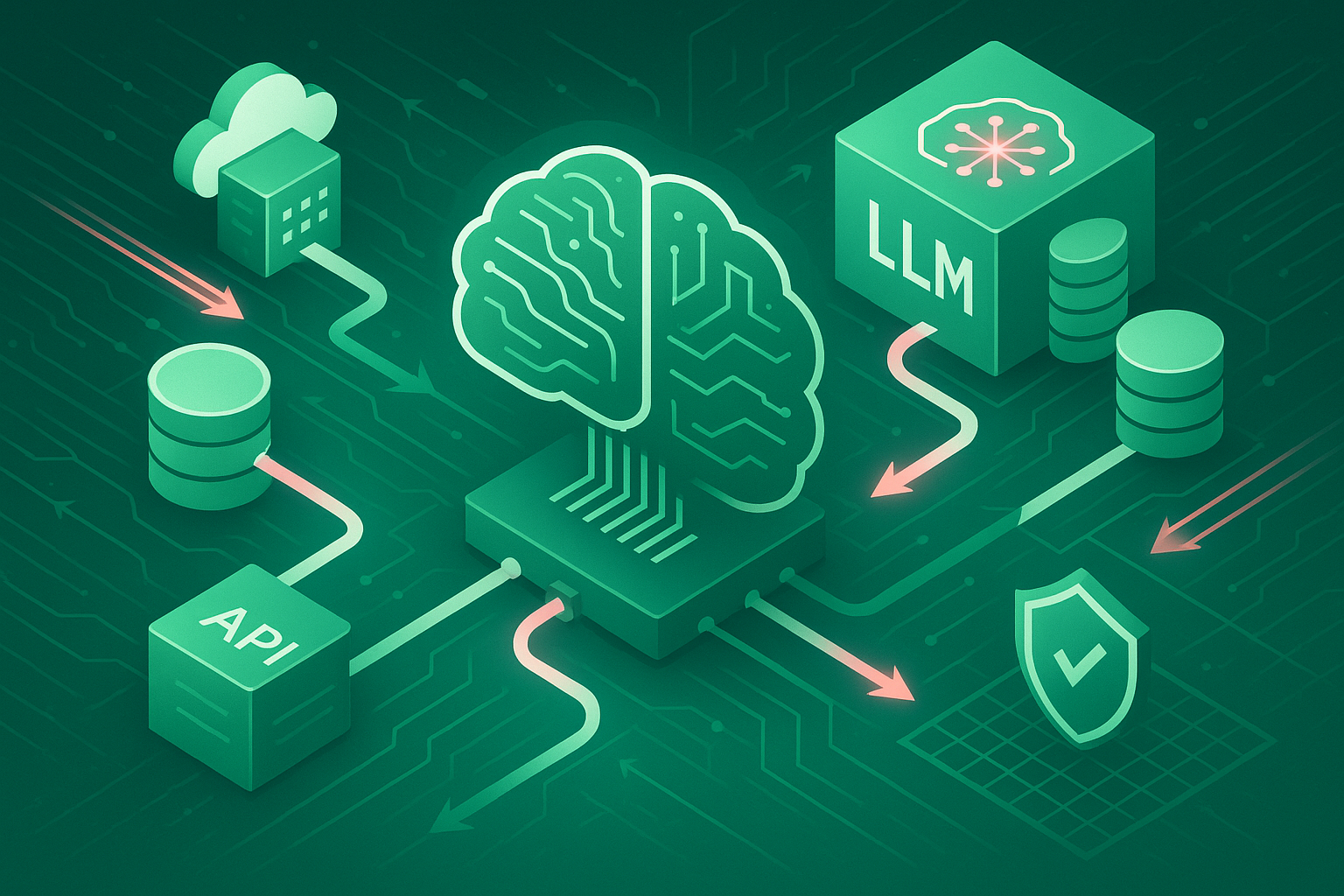
MCP Servers
Development of custom MCP servers, integration with AI models to support mission-critical AI workflows.
What are MCP Servers?
These servers act as intermediaries between AI models and your custom backend applications and data sources such as relational databases, analytics data, cloud storage systems like S3 or GCS, etc.. With the help of MCPs LLMs can access and process data from these sources in a secure and efficient manner. In addition MCP servers allow LLMs to execute custom logic, perform data transformations, initiate agent actions , and interact with other services as part of AI workflows that automate tasks and processes for your business.
More information about MCP can be found in the Model Context Protocol official website.
How do I get an MCP Server?
MCP (Model Control Plane) servers can be developed in-house by your engineering team, or outsourced to specialized consultants (such as myself) with experience in building MCP solutions. The development process typically involves the following steps:
- Requirements gathering: Understand your specific use cases, data sources, and AI model requirements.
- Architecture design: Design the MCP server architecture, including components, data flow, and integration points.
- Development: Implement the MCP server using appropriate technologies and frameworks.
- Testing: Thoroughly test the MCP server to ensure it meets functional and performance requirements.
- Deployment: Deploy the MCP server to your production environment.
- Maintenance: Ongoing maintenance and updates to ensure the MCP server continues to meet your evolving needs
Having developed an MCP server for private partnership in FinTech space , I have hands-on experience in building robust and scalable MCP solutions that can handle mission-critical AI workflows. If you are interested in learning more about how MCP servers can benefit your organization, feel free to reach out to discuss your specific requirements and how I can assist you in developing a custom MCP solution.
Key Features of MCP Servers
- Data Integration: Connect to various data sources such as databases, cloud storage, APIs, etc.
- Custom Logic Execution: Implement custom business logic and data transformations.
- Security and Compliance: Ensure secure data access and compliance with relevant regulations.
- Scalability: Design for high availability and scalability to handle varying workloads.
Testing and Deployment to Production
Considering the fact that MCP server often handle sensitive data and mission-critical workflows in conjunction with AI models, it is essential to have a robust testing and deployment strategy in place. MCP servers often expose access to set of functionalities represented by “tools” that LLMs can use to execute actions to obtain data from other components in your infrastructure. It is essential that each tool function is tested explicitly. Also, security is often a concern, adding additional dimension of complexity such as LLM prompt injections, and model hallucinations. Specific mechanism and techniques need to be employed to guard against data breaches or accidental actions via these vectors. In addition to typical software testing practices such as unit testing, integration testing, and end-to-end testing, the following considerations are important for MCP servers:
- Tool Testing: Test each tool or function exposed by the MCP server to ensure they perform their intended actions correctly and securely.
- Prompt Injection Testing: Simulate prompt injection attacks to verify that the MCP server can handle and mitigate such threats effectively.
- Hallucination Handling: Test the MCP server’s ability to manage and mitigate issues arising from AI model hallucinations, ensuring that erroneous outputs do not lead to unintended actions.
- AI Model Testing: Validate the integration with AI models, ensuring that they can access and process data correctly through the MCP server.
- Functional Testing: Ensure that all MCP server functionalities work as intended, including data integration, custom logic execution, and interaction with AI models.
- Logic Validation: Verify that custom business logic and data transformations are executed correctly and produce expected results.
Production
Deploying MCP servers to production typically involves packaging them as Docker containers and deploying them on container management platforms such as Kubernetes, AWS ECS, or GCP Cloud Run. This approach allows for easy scaling, management, and monitoring of MCP servers in production environments.
There is also typically an additional step to configure LLM models to connect to your MCP servers often involving setting up secure API endpoints and authentication mechanisms to ensure secure communication between the models and the MCP server.
